CT Lung Cancer Screening
Early Detection
Detecting lung cancer early and having it surgically resected has shown to improve five year survival rates to greater than 70%. Using CT lung screening in high risk patients has shown to decrease cancer death by 20% according to the recently published National Lung Screening Trial.
Time to Quit?
Screening is NOT a substitute for smoking cessation. Quitting smoking remains the most effective way to reduce the consequences and risk of death related to smoking. In addition to discussing lung cancer screening CT with your healthcare provider, we strongly encourage you to take this opportunity to talk with your provider about how to quit smoking.
Low Dose, No Contrast!
• Lung cancer screening is performed utilizing a low-dose technique which is approximately 1/6 of the radiation of conventional CT of the chest.
• Screening CT is performed without intravenous contrast (no IV is required).
• Test takes less than 5 minutes.
Medicare Approved
Medicare and most private insurance providers have approved payment for CT Low Dose Lung Cancer Screening. Medicare coinsurance and Part B deductible are waived for this preventive service.
Recommendations for Patients
CT screening is recommended for patients who meet the following criteria.
• Be 55–77 years of age;
• Have a tobacco smoking history of at least 30 pack-years*
• Be a current smoker or one who has quit smoking within the last 15 years
• Receive a written order for lung cancer screening with LDCT from your physician. If you meet the above criteria, you should contact your health care provider about having a low dose CT lung cancer screening.*Pack years = Maximum number of packs smoked per day multiplied by the total number of years smoked (Examples: 1 pack a day for 10 years = 10 pack years; 3 packs a day for 10 years = 30 pack years.)
Drawbacks of Screening
Up to 25% of patients undergoing screening will have small “spots” (lung nodules) on their examination. Although many of these nodules are benign (not cancer), there is no way to tell without additional follow up CT examinations. Any exposure to ionizing radiation carries some inherent risk; however, lung cancer screening CT use a very low dose of radiation. The benefits of CT lung cancer screening, early diagnosis and treatment of an early lung cancer are thought to far outweigh any potential negative consequences of screening.
JCMG’s Low-Dose Screening program is administered and supervised by JCMG Radiology’s Marcus Wade, M.D. Dr. Wade is the former section Chief of Cardiothoracic Imaging at the University of Missouri, and helped to establish and supervise their lung cancer screening program. He was born and raised in Missouri. He attended Washington University’s undergraduate medical school, then did his residency training at the University of Missouri, and finally his fellowship training at University of Alabama at Birmingham. Dr. Wade is the only fellowship-trained, cardiothoracic-trained radiologist in Jefferson City.
USPSTF guidelines now recommend CT screen starting at age 50 for any patients with 20 or more pack year history.


